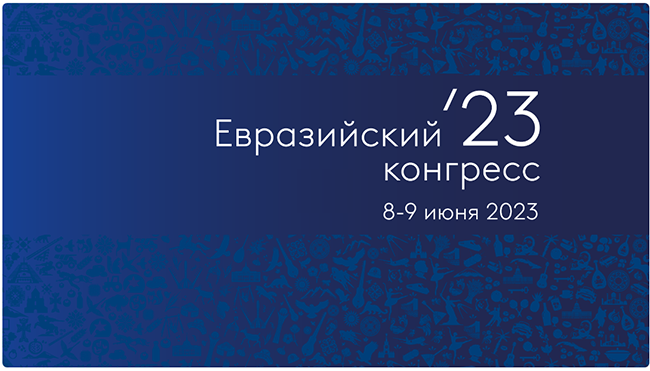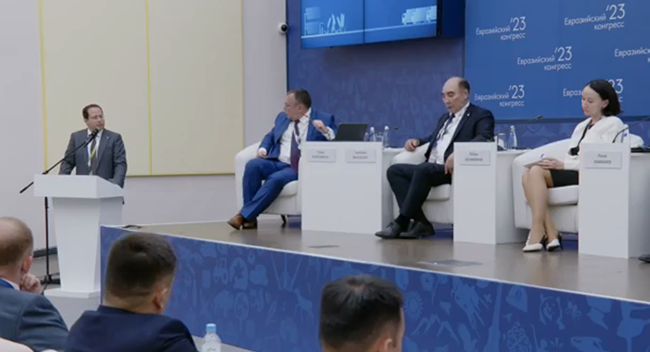SIC ICWC PARTICIPATES IN THE EURASIAN CONGRESS ’23 “EURASIA OF THE FUTURE: FROM CHALLENGES TO SOLUTIONS”
The Eurasian Congress ’23 took place under the slogan “Eurasia of the Future: from Challenges to Solutions” in Sochi on June 8-9.
The Congress offered a space for open dialogue between businesses, financial institutions, representatives of governments, academia, and experts.

The Congress featured a number of sessions:
- High Tech as a Driver of Eurasian Integration,
- Digital Transformation and Building a New Economic Setup in Eurasia,
- Eurasian Water and Energy Complex,
- Transport and Logistics in Eurasia, etc.

Dinara Ziganshina, Director of SIC ICWC spoke at the Eurasian Water and Energy Complex session.

She underlined that the Central Asian countries had formed themselves and on their own initiative an Interstate Commission for Water Coordination for coordinated regulation, integrated and rational use and conservation of transboundary water resources. The Commission functions under umbrella of the International Fund for saving the Aral Sea, which celebrated its 30th anniversary a day earlier in Dushanbe.
Support by the Heads of state, regular meetings, the extended network of executive agencies, a system of operational transboundary water management and monitoring, and integration of science and analytics (SIC) in the work are among the undisputable advantages of the ICWC and IFAS system.
Thanks to this and despite occurrence of extremely dry and wet years and very complicated political, economic, social and environmental conditions, the counties managed to maintain peace, while adapting water management, as far as possible, to new realities.
As requested by the Heads of Central Asian States, the institutional and legal improvement of the IFAS is underway. The relevant working groups have reached agreements on the four focus areas of the upgraded structure of the Fund. These are water, energy, environment and water- and ecology-related socio-economic issues.
In this context, the reporter paid attention to environmental issues since those are difficult to assess in terms of cost effectiveness.
Ms. Ziganshina shared the future plans. Currently a team of experts from Central Asia and foreign partners work on transboundary public-private partnership. In addition to international experience, they examined the Central Asian countries in joint financing transboundary water cooperation so that to develop the already existing mechanisms and upgrade them proceeding from regional and water specifics.
It is believed that sustainable financing mechanisms and individual transboundary PPP projects should fit into mutually agreed long-term plans of integrated water management, use and conservation on the basin scale. This means that basin-wide strategic assessments are needed in addition to project-specific assessments. And, undoubtedly, rational water use should be the engine of all actions.
|